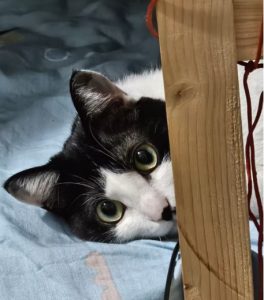Feline Infectious Peritonitis (FIP), a viral disease caused by feline coronaviruses, poses a significant threat to cats. The infection primarily spreads through oral and nasal routes, with a high transmission rate. Feline coronaviruses typically reside in a cat’s intestines, often only causing temporary diarrhea. Regular disinfection and avoiding communal feeding can usually prevent issues. However, when these coronaviruses mutate into the FIP virus and spread beyond the intestines to other parts of the body, the situation becomes severe.
FIP has two forms. The wet form is characterized by the accumulation of large amounts of fluid in the chest or abdomen, leading to breathing difficulties. The dry form, on the other hand, does not involve fluid buildup in body cavities but causes granulomatous lesions in organs, resulting in symptoms like eye bleeding, limb paralysis, and even convulsions. Both forms of FIP share symptoms such as persistent fever, loss of appetite, and weight loss.
FIP is a deadly disease that predominantly affects kittens and cats under the age of two. One of the reasons FIP is difficult to diagnose is that the symptoms displayed by infected cats are highly similar to those of common colds, fevers, diarrhea, and ordinary eye inflammations.
Cat owners should be alert when their pets exhibit reduced appetite and signs of depression, along with elevated body temperature. A key indicator of this disease is the accumulation of fluid in body cavities, which causes abdominal swelling. Even after draining the fluid, the abdomen may become swollen again within a few days. However, in cases where a cat suffers from the dry form of FIP, treatment becomes more challenging as it primarily affects the eyes, the central nervous system, and internal organs. Therefore, if a cat shows any of the aforementioned symptoms, it is crucial to take it to a veterinarian for examination and diagnosis as soon as possible.
FIP is a life-threatening disease for cats. The virus has a short incubation period of just a few weeks, but it can also lie dormant for several years. Once a cat contracts FIP, it may succumb to the disease within weeks. If you have multiple cats in your household, it is essential to provide each cat with its own food bowl and to promptly clean up their urine and feces. These measures are the most effective ways to prevent the spread of FIP.
In recent years, researchers have been actively exploring new methods for the prevention and treatment of FIP. Some promising vaccine candidates are undergoing clinical trials, and novel antiviral drugs are showing potential in inhibiting the replication of the FIP virus. However, these approaches are still in the experimental stage and have not yet been widely applied in clinical practice. Cat owners should stay updated on the latest research developments while taking preventive measures in their daily routines. Additionally, regular veterinary check-ups can help detect potential health issues in cats at an early stage, providing a better chance for effective intervention and treatment.

